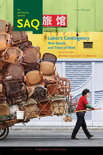
SOUTH ATLANTIC QUARTERLY
Scope & Guideline
Navigating the Intersection of Humanities and Social Sciences
Introduction
Aims and Scopes
- Critical Theory and Activism:
The journal promotes critical theoretical frameworks that engage with activism and social movements, particularly those addressing systemic oppression and inequality. - Postcolonial and Anti-Colonial Studies:
It emphasizes research on postcolonial theory and anti-colonial struggles, highlighting the historical and ongoing impacts of colonialism on contemporary societies. - Intersectionality:
The journal focuses on intersectional analyses that consider how various social identities (race, gender, sexuality, class) intersect to shape experiences of oppression and resistance. - Transnational Perspectives:
Contributions often explore transnational movements and the global implications of local struggles, examining how issues of race and class transcend national borders. - Cultural Critique:
The journal serves as a platform for cultural critique, analyzing literature, art, and media to understand their roles in shaping social and political discourse.
Trending and Emerging
- Health Justice and Reproductive Rights:
Recent publications have increasingly addressed issues of health justice, particularly in the context of reproductive rights. This reflects a growing awareness of the intersections between healthcare, race, and gender, especially post-Roe v. Wade. - Digital Activism and Social Media:
There is a notable rise in discussions surrounding digital activism, exploring how social media platforms facilitate or hinder movements for social justice and equity. - Racial Capitalism:
The concept of racial capitalism has gained traction, with analyses focusing on how capitalism is intertwined with racial exploitation, and how this shapes contemporary struggles across the globe. - Environmental Justice:
Emerging themes around environmental justice highlight the interconnectedness of ecological crises and social injustices, emphasizing the experiences of marginalized communities in climate discussions. - Decolonial Perspectives:
An increasing number of articles are adopting decolonial frameworks, examining how colonial histories and legacies affect current socio-political dynamics and advocating for alternative modes of knowledge production.
Declining or Waning
- Traditional Marxist Theory:
There has been a noticeable decline in papers strictly adhering to traditional Marxist frameworks, with a shift towards more intersectional and nuanced approaches that integrate race, gender, and sexuality into analyses of capitalism. - Classical Feminist Theory:
Papers focused solely on classical feminist theory without consideration of intersectionality seem to be less prevalent, as the journal increasingly embraces a broader spectrum of feminist thought that incorporates race and class. - State-Centric Analyses:
Research centered exclusively on state politics and governance is waning, as there is a growing emphasis on grassroots movements and non-state actors in shaping political landscapes.
Similar Journals

PONTE
Innovating Research for a Dynamic Academic CommunityPONTE is a distinguished academic journal published by IL PONTE EDITORE, focusing on the interdisciplinary fields of Arts and Humanities as well as Social Sciences, specifically within Literature and Literary Theory and Sociology and Political Science. Despite its recent coverage discontinuation in Scopus, PONTE remains an essential platform for scholarly discourse, aiming to enrich the academic community with critical insights and diverse perspectives. Established in Italy, this journal offers a unique forum for researchers, professionals, and students to engage with contemporary issues, promote innovative research, and contribute to the evolving dialogue in the humanities and social sciences. While it does not provide Open Access options, the journal's content is pivotal for those seeking to deepen their knowledge and foster collaboration across disciplines. As the field continues to grow, PONTE's commitment to high-quality research ensures its historical significance and ongoing relevance in academic inquiry.
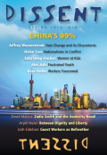
DISSENT
Engaging critical voices in the pursuit of social justice.DISSENT is a prominent journal published by the Foundation Study Independent Social Ideas, Inc, dedicated to the examination and critique of various social ideas and movements. Since its inception in 1976, DISSENT has established itself as a pivotal platform for scholars and practitioners in the fields of sociology and political science, although it currently resides in the Q4 quartile for both categories according to the 2023 rankings. With its ISSN 0012-3846 and E-ISSN 1946-0910, DISSENT engages with complex societal issues, providing invaluable insights that contribute to the discourse surrounding social justice, inequality, and ideological critique. While the journal does not offer open access, it remains relevant for academic institutions and professionals seeking to deepen their understanding of contemporary social challenges. Its evolving scope and emphasis on independent thought make it an essential resource for researchers and students alike, fostering an environment of critical analysis and dialogue.

Modern Chinese Literature and Culture
Fostering Critical Insights into Modern Chinese LiteratureWelcome to Modern Chinese Literature and Culture, a prestigious academic journal dedicated to the exploration of contemporary Chinese literary and cultural studies. Published by FOREIGN LANGUAGE PUBL, this journal maintains a robust reputation within the academic community, reflected in its impressive impact factor and its standing as a Q2 journal in Cultural Studies and a Q1 journal in Literature and Literary Theory for 2023. Covering a comprehensive scope that spans from 2009 to 2024, this journal serves as a vital platform for scholars, researchers, and students committed to advancing knowledge in the field. With Scopus ranks highlighting its influence (Rank #342/1106 for Literature and Literary Theory), Modern Chinese Literature and Culture offers a rigorous forum for critical scholarship that examines the dynamic interplay between literature and culture in Chinese contexts. Although it does not currently operate under an open access model, the journal's significance as a resource for innovative research makes it indispensable for anyone investigating modern Chinese narratives and their cultural implications.

TWENTIETH CENTURY LITERATURE
Navigating the Evolution of Literary ExpressionTWENTIETH CENTURY LITERATURE is a renowned journal published by Hofstra University Press, dedicated to the exploration and analysis of literature and literary theory from the twentieth century. With a focus on both established and emerging voices in the field, this journal serves as an essential resource for researchers, professionals, and students who seek to deepen their understanding of significant literary movements and trends. The journal holds an impressive Q2 category ranking in Literature and Literary Theory as of 2023, showcasing its impact and relevance in the academic community. Though not an open access journal, it provides valuable insights and scholarly discussions that contribute to ongoing debates in literature studies. Covering a converged period from 2002 to 2014 and continuing from 2016 to 2024, TWENTIETH CENTURY LITERATURE positions itself as a pivotal platform for thought-provoking literature critique and scholarly inquiry, making it an indispensable addition to any academic library or personal collection.

LIBERTE
Exploring Cultural Narratives Through Critical DiscourseLIBERTE is a distinguished academic journal that serves as a platform for critical thinking and scholarly discourse across various fields including Literature and Literary Theory, Philosophy, Sociology and Political Science, and Visual Arts and Performing Arts. Established in Canada and published by LIBERTE, this journal aims to foster intellectual exchange and explore the nuances of cultural and social narratives. Although it currently falls in the Q4 quartile across its categories, it is dedicated to advancing the conversation in the arts and humanities, providing a rich resource for researchers, educators, and students alike. With an ISSN of 0024-2020 and an active publication cycle running from 2002 to 2024, LIBERTE welcomes contributions that challenge prevailing ideologies and reflect innovative perspectives. While the journal is not open access, its value in promoting academic inquiry within its communities cannot be overstated.
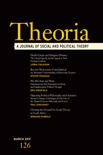
THEORIA
Championing Open Access for Groundbreaking Research.THEORIA is a distinguished academic journal focused on the intersection of theory and practice within the humanities and social sciences. Published by Berghahn Journals, this Open Access journal has been a pivotal platform for disseminating innovative research since 2021, ensuring that scholarly work is accessible to a global audience. With its commitment to fostering intellectual discourse, THEORIA invites contributions that critically explore diverse theoretical frameworks and their applications in contemporary societal contexts. Researchers, professionals, and students will find that the journal not only enriches their understanding but also encourages collaborative dialogue across disciplines. Explore the latest insights and developments in theoretical research, and join a vibrant community dedicated to advancing knowledge and critical thinking.
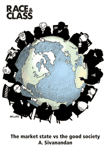
RACE & CLASS
Pioneering Research on Power and IdentityRACE & CLASS, a prestigious journal published by SAGE Publications Ltd, focuses on advancing scholarship in the fields of Anthropology, Archaeology, Cultural Studies, and Sociology. Since its inception in 1959, it has become an indispensable resource for researchers and professionals interested in examining the intersections of race, class, and power dynamics within various sociocultural contexts. With an impressive standing in the academic community, it holds a Q1 status in multiple categories, placing it within the top quartile of journals for both Social Sciences and Humanities disciplines, thus ensuring high visibility and citation impact. Although it is not open access, the journal continues to provide rich, peer-reviewed content that invites informed discourse and critical analysis. With its dedication to addressing contemporary issues of inequality and social justice, RACE & CLASS remains a cornerstone for scholars and students alike, fostering a deeper understanding of complex societal structures.

Constelaciones-Revista de Teoria Critica
Fostering Interdisciplinary Dialogue in the HumanitiesConstelaciones-Revista de Teoria Critica is an esteemed journal dedicated to the exploration of critical theory, providing a platform for innovative scholarship in the humanities and social sciences. Published by SOC ESTUDIOS TEORIA CRITICA, this journal facilitates intellectual discourse by publishing cutting-edge research and theoretical analyses that engage with contemporary global challenges. With an ISSN of 2172-9506, it embraces an interdisciplinary approach, inviting contributions that span various fields, including philosophy, sociology, cultural studies, and political theory. Although it does not presently offer open access, it serves as a vital resource for scholars seeking to deepen their understanding of critical thought and its implications in today’s world. The journal's commitment to high scholarly standards ensures its relevance and effectiveness in fostering academic dialogue, making it an influential resource for researchers, professionals, and students alike.
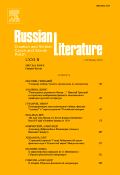
RUSSIAN LITERATURE
Connecting Past and Present in Russian Literary DiscourseRUSSIAN LITERATURE is a premier academic journal published by ELSEVIER, dedicated to advancing the study of Russian literary traditions, critical theory, and cultural contexts. With an ISSN of 0304-3479 and an E-ISSN of 1878-3678, this journal has firmly established itself as a vital resource in the field, achieving a commendable Q1 ranking in Literature and Literary Theory as of 2023. The journal benefits from a strong impact factor and ranks #178 out of 1106 in the Scopus database, placing it in the 83rd percentile of arts and humanities research. RUSSIAN LITERATURE covers an extensive timeline, converging years from 1971 to 1974 and from 1976 to 2023, reflecting its rich academic lineage. Although not an open-access publication, the journal remains influential among scholars, professionals, and students seeking in-depth analyses and critical insights into Russian literature and literary theory. Its commitment to scholarly rigor makes it an essential read for anyone engaging with the complexities of literary studies.
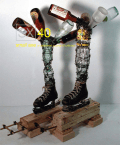
Small Axe
Bridging Disciplines for a Deeper Understanding of CultureSmall Axe is a distinguished academic journal published by DUKE UNIVERSITY PRESS, focusing on the intersections of Cultural Studies, Literature and Literary Theory, and Sociology and Political Science. With an ISSN of 0799-0537 and an E-ISSN of 1534-6714, this journal has garnered significant recognition in its field, achieving a Q1 ranking in Literature and Literary Theory and a Q2 in Cultural Studies as of 2023. Its commitment to fostering scholarly dialogue on critical issues stretches through converged years from 2018 to 2024, ensuring timely and relevant contributions to the discourse. Although not an Open Access journal, it provides valuable insights and research that are pivotal for academia, driving forward conversations on social justice, identity politics, and the dynamic nature of culture. With strong Scopus ranks that affirm its impact—placing it in the 89th percentile for Literature and Literary Theory and the 65th percentile for Cultural Studies—Small Axe is instrumental for researchers, professionals, and students who are invested in the nuanced exploration of contemporary societal issues.